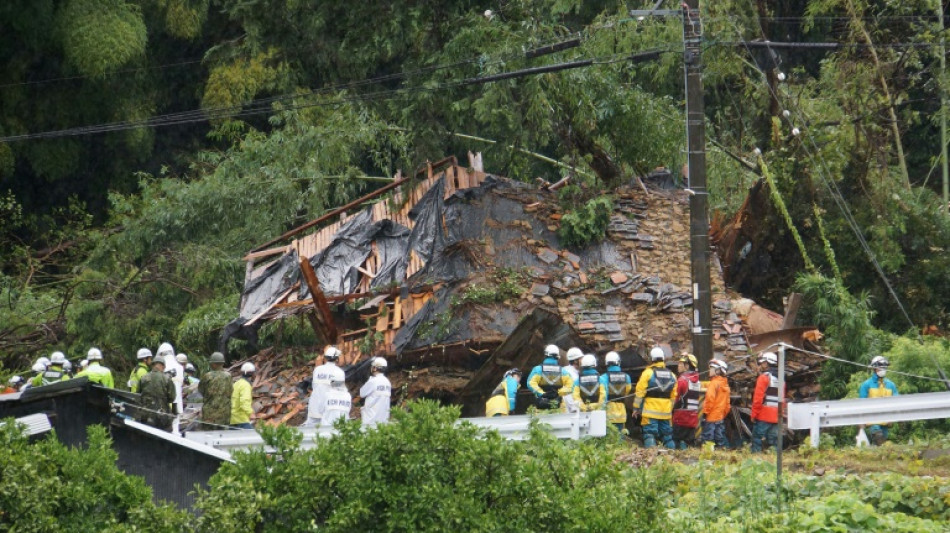
RBGPF
0.1000


Japan braced Wednesday for its strongest typhoon of the year, with authorities advising tens of thousands of people to evacuate and issuing the highest warning level for wind and storm surges on the main southern island of Kyushu.
"Typhoon Shanshan is expected to approach southern Kyushu with extremely strong force through Thursday and it may make landfall," Chief Cabinet Secretary Yoshimasa Hayashi told reporters.
"It is expected that violent winds, high waves, and storm surge at levels that many people have never experienced before may occur," said Hayashi, the top government spokesman.
The approach of the storm, packing gusts of up to 252 kilometres (157 miles) per hour and already bringing widespread heavy rain, prompted auto giant Toyota to suspend production at all 14 of its factories.
Two people remained unaccounted for on Wednesday after a landslide buried a house with five family members inside in Gamagori, a city in central Aichi prefecture.
Rescuers worked around the clock and on Wednesday afternoon they pulled out a woman in her 70s.
"She wasn't breathing and was unconscious," a Gamagori official told AFP. They were still searching for a man in his 70s and another in his 30s.
For southern Kyushu the Japan Meteorological Agency (JMA) predicted 1,100 millimetres (43 inches) of precipitation in the 48 hours to Friday morning.
The JMA also issued its highest "special warning" for violent storms, waves and high tides in parts of the Kagoshima region of Kyushu, with authorities there advising 56,000 people to evacuate.
Video on NHK TV showed roof tiles being blown off houses, broken windows and felled trees.
The warnings indicate that the "possibility that a major disaster prompted by (the typhoon) is extremely high," Satoshi Sugimoto, chief forecaster of JMA, told a news conference.
Japan Airlines cancelled 172 domestic flights and six international flights scheduled for Wednesday and Thursday, while ANA nixed 219 domestic flights and four international ones on Wednesday, Thursday and Friday.
The cancellations affected around 25,000 people.
Kyushu Railway said it would suspend some Shinkansen bullet train services between Kumamoto and Kagoshima Chuo from Wednesday night and warned of further possible disruption.
Trains between Tokyo and Fukuoka, the most populous city on Kyushu, may also be cancelled depending on weather conditions this week, other operators said.
Shanshan comes in the wake of Typhoon Ampil, which disrupted hundreds of flights and trains this month.
Despite dumping heavy rain, it caused only minor injuries and damage.
Ampil came days after Tropical Storm Maria brought record rains to northern areas.
Typhoons in the region have been forming closer to coastlines, intensifying more rapidly and lasting longer over land due to climate change, according to a study released last month.
hih-kh-nf-tmo/stu/fox
O.Tse--ThChM